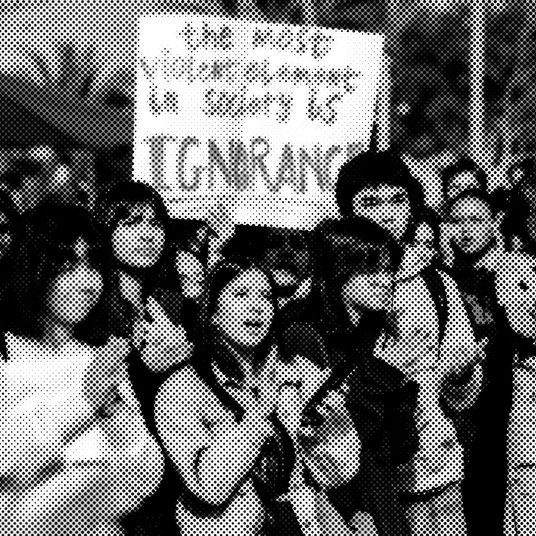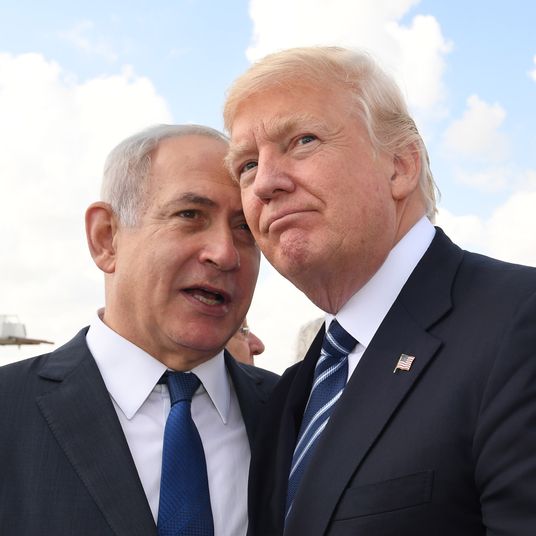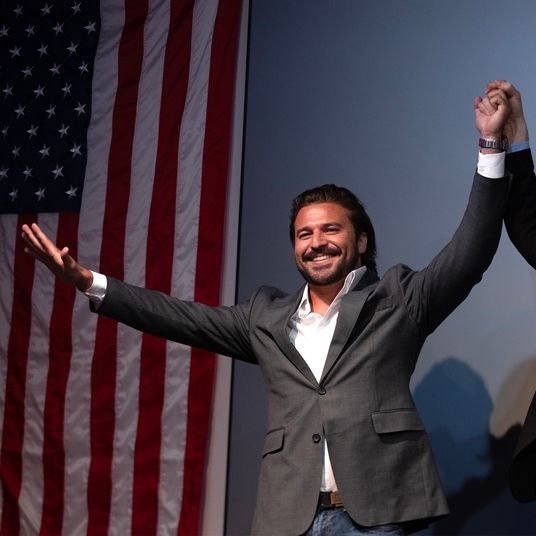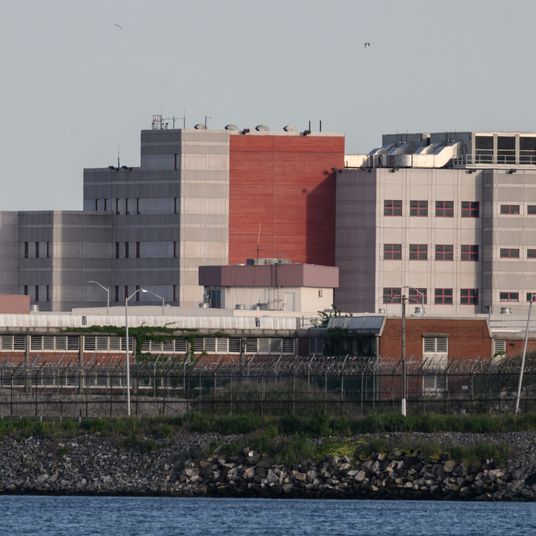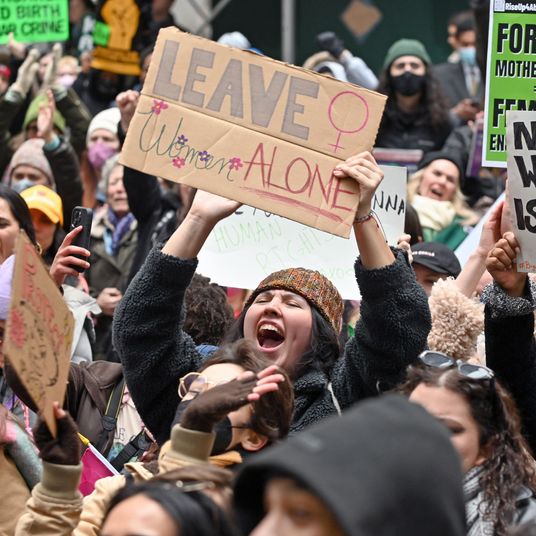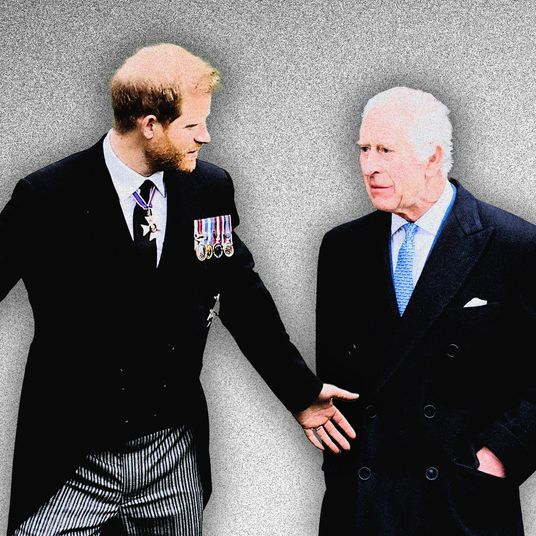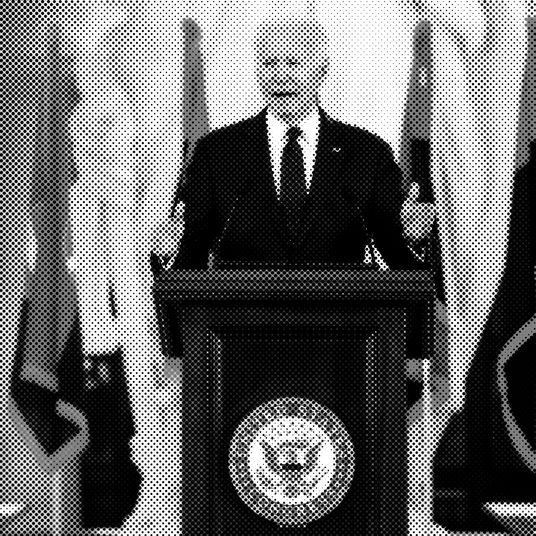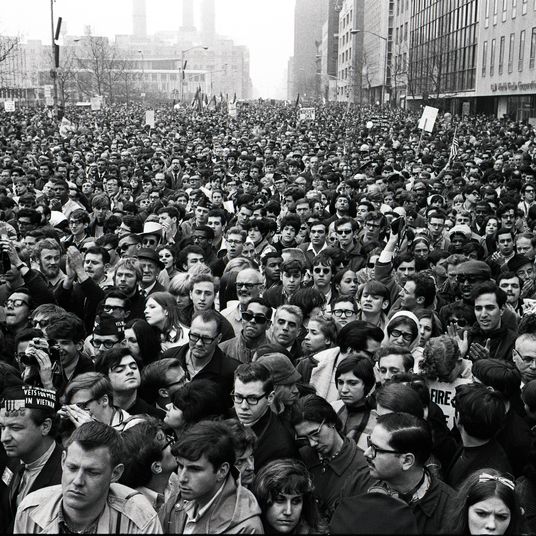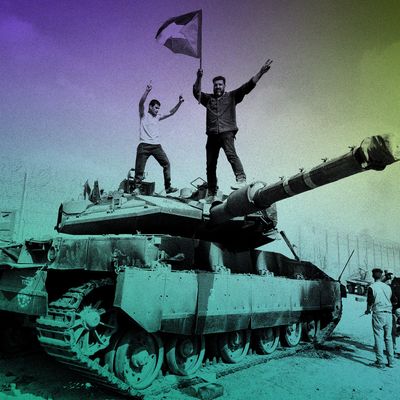
Almost a week after Hamas killed at least 1,300 people — mostly civilians — Israel is wrestling with two central questions: How the country could have let such an elaborately planned assault happen, and how to respond. Michael Milshtein, a former Israeli military intelligence officer and head of the Palestinian Studies Forum at Tel Aviv University, believes that the Israeli government’s fundamental misunderstanding of Hamas led to this moment. As Benjamin Netanyahu’s far-right coalition focused on a divisive judicial overhaul, it believed that economic incentives like work permits for Gazans had sufficiently pacified Hamas, a group that had made its violent intentions clear. I spoke with Milshtein about how and why Israel took its eye off the ball and why the government may not actually want to eradicate its sworn enemy.
You told the AFP this week, “We totally misunderstood Hamas.” You continued, “The notion of economic incentives that would diminish their motivation for terror and even cause the public to go against it totally collapsed.” Why didn’t almost anyone in Israel take the group seriously enough in recent years?
When you’re trying to analyze the deep, deep reason for not understanding Hamas — I spend a lot of time thinking about that. I now know that we do not really understand the cultural way of thinking of Hamas and actually of every Islamic ideological organization.
We have our own western logic, and we’re enforcing our logic on the other side. Here in Israel, we believed that after 2007, when Hamas took over the Gaza Strip, the organization would become less militant and more moderate — because they had to deal with not only jihad but also with hospitals and energy and education.
Pragmatic.
Yeah, exactly. The basic concept was that if you improved the economic and civil situation in Gaza, you would create achievements that Hamas could lose, and you would also deter Hamas from promoting escalation — and even create a situation where the public would protest against Hamas if they escalated. It was a very, I would call it, western-style way of thinking, that you could control this tiger and you could actually take him and create a poodle.
On the 7th of October, at 6:30 in the morning, Hamas proved to us that this organization, when it needed to choose — it’s absolutely clear that their basic path is the jihad. They don’t really care about people, or that 18,000 Palestinians have now lost their jobs and salaries in Israel. It’s really amazing.
In terms of motives — you said Israel was making conditions better in Gaza, but obviously they still weren’t great. And beyond that, you could say that with a deal between Saudi Arabia, Israel, and the U.S. looming, Palestinians may have felt they were being forgotten on the world stage.
Although, Ben, you need to remember this offensive was planned a year ago. All talks about negotiations between us and the Saudis began only two, three months ago. It’s absolutely clear that the basic reasons for this brutal attack was not the Al-Aqsa Mosque, or the war in the West Bank, or the economic situation in Gaza, or the Saudi-Israeli negotiations. It was much deeper. It was a part of the long-term vision of Hamas to eradicate Israel.
What I just said would be an example of western-style thinking, you’re saying?
Absolutely. In order to understand Hamas, you have to know Arabic, and you have to read things in Arabic and listen to Hamas preachers and Hamas leaders when they speak to their own people. It’s absolutely different from the things that are translated to us in Hebrew or English. For two years, I read all those books, and articles, and interviews, and it was absolutely clear for me that Hamas is not ready at all to give up on the jihad for permits, for workers, or for any other economic gesture from Israel.
So you were less surprised by what happened than some other people, perhaps?
Unfortunately, I wasn’t surprised at all. I write a lot of articles, and I give a lot of interviews on the radio and on television, and I am known very much as a critic of the former policy toward Gaza. I always said, during every round of escalation and during every crisis: “Listen, this policy doesn’t work. It’s full of gaps. There are so many bad signals.” And unfortunately, people, including high-ranking figures here, listened to the critics, but they did not accept those arguments. They said, “Okay, but this was the calmest year in Gaza since 2000. So you see? It’s okay. It works.”
Moving forward to what happens now: You wrote in the Financial Times that an occupation of Gaza would be too costly and that, instead, Israel needs to prepare for a long campaign to marginalize Hamas.
That’s right. When you read the announcement of Netanyahu from Saturday night, he said that his basic aim is to make Hamas weaker. He really wants to hurt Hamas’s military and regime capabilities, but he didn’t say he wanted the regime to collapse.
Interesting. So the endgame is not to destroy the group altogether.
No, no. Those are slogans, Ben. Those are slogans — to destroy them, to make them vanish.
First, what does that mean? And second, what is the alternative? When we’re speaking about Hamas members, we’re not only talking about the military-wing members. That is, I assess 30,000 people. All the rest are members of the charity funds, the civil infrastructure, and the mosques. Okay, let’s say we kill 100,000 Hamas members and there are none left. There are two options then. The first one is that you, Israel, reoccupy the Gaza Strip and have to take care of 2.2 million people. And I think that would be exactly like Iraq after 2008.
The alternative is that you ruin Hamas and get out of Gaza immediately. And that means that there will be a vacuum over there, where all kinds of crazy guys and crazy groups can get in. It will look like little Somalia or little Afghanistan over there, full of chaos.
I wonder if you think the current unity government, which includes Netanyahu and Benny Gantz, is thinking strategically about all of this. This attack has a 9/11 feel to it, and the U.S. government made a lot of rash decisions in the aftermath of that.
I personally know two prominent figures in the new government, Benny Gantz and Gadi Eizenkot; they were my commanders when I served in the IDF intelligence and, after that, in COGAT, the Coordination of Government Activities in the Territories. I know them, and their way of thinking is very strategic. There is no one who can say that he’s not shocked here in Israel from the events of Saturday. But they do understand that there’s nothing you can call good alternatives today in Gaza.
I think the least bad alternative is that Hamas is very contained, very weak, with no major military capabilities until maybe there’s some internal change in Gaza. Maybe something like the Arab Spring — because Hamas is a dictatorship. They are a minority in Gaza. There’re not the majority of Gaza. And maybe after the current war, and a future blockade on Gaza, there will be internal protest, a popular protest against Hamas. But this is kind of wishful thinking.
Given that we just saw a massive intelligence failure take place in Israel, do you have much confidence that the military would be able to target the people they want to hit with any kind of precision without causing mass civilian casualties?
Absolutely. I know that the current attacks are not blind attacks, where you bomb everything and you don’t really know what the targets are.
We really want to be focused on Hamas, but in the past we were focused mainly on the military wing. Today, we are trying to attack the whole scope — I mean prominent political, social, and economic figures in Hamas. For example, three prominent religious and political figures in Hamas were killed over the last 24 hours. I think that maybe they believed or thought to themselves that they’re not senior enough so they didn’t have to be in a shelter and that Israel is not trying to attack them. But I think Hamas now understands that this is not an operation like in the past. Maybe the head of Hamas, Yahya Sinwar, when he started this, thought that it would take a week or two weeks — that after that, Qatar and Egypt would resolve the conflict. And two days after that, there would be an understanding, and all the workers would go from Gaza to Israel again. But that belongs to history — the history before the 7th of October.
I can’t imagine Hamas could be so surprised by this level of response, given the scale of their attack.
After listening to all kinds of Hamas leaders, and reading all their newspapers and sites during the last five days, I assess — I do not know — but I assess that their success was too much. Let’s put it that way. I think that if you could ask Yahya Sinwar on October 6, I think that he would tell you, “We will get into one, two, three of the bases or of the villages around the border, and we will take five, ten, 20 soldiers.” He now finds himself with 130 hostages: soldiers, civilians, babies, women.
Is that because Hamas wasn’t expecting the operation to be so easy?
Unfortunately, yes. I think they thought that the fight against the IDF forces near the border would be tougher, and it was quite easy. That’s why they entered all the villages very quickly. They could enter all the kibbutzim and the moshavim in a very, very rapid manner.
Hamas took one hostage, Gilad Shalit, in 2006, and he became a national preoccupation. Israel prioritized getting him back to the point that they released over a thousand Palestinian prisoners in exchange. This situation is vastly different. I’m wondering how you think Israel is thinking about the trade-off between the hostages’ safety and the military objective of weakening Hamas?
It’s very complicated. As you said, there’s never been an event when about 130 people, most of them civilians, were taken by a Palestinian terror organization — and we’re talking about babies, old women, and children.
But because of the slaughter of 1,200 people, most of them civilians in Israel, I think that right now the main objective among the Israeli society is revenge and to carry out a tough, even bloody offensive against Hamas. I’m quite sure that the government and the IDF are taking the hostages into consideration, and I’m quite sure that if there are buildings where we know hostages are located, they won’t be attacked. But it is not a consideration that they will right now limit or change any strategic plan regarding Gaza. I do think that there’s some interesting reports right now. Have you heard about the report regarding negotiations for Palestinian women prisoners?
No.
There was a report — I think it’s an authentic one — about the idea of Qatar releasing 36 Palestinians, women prisoners, that are held in Israel. In return, Hamas would release all the old people, the women, and the children and the babies. I think almost a week after the offensive, Yahya Sinwar has started to understand that those prisoners are not such a positive achievement because they cause damage to Hamas’s image. The idea that Hamas is ISIS is very easy to explain when Hamas is taking babies.
But now you’re making Hamas sound semi-reasonable, which you had said they weren’t.
They are radical, but they’re reasonable. It’s like, for example, like Hitler, and like Khamenei. They’re so radical, but they are very reasonable. They’re even pragmatic.
Okay. I guess Hitler was pragmatic.
Yeah. He found a lot of ways to maneuver and to be flexible in all kinds of events. But, of course, his vision was extremely radical and he wanted to implement it. So they’re the same, I think.
What is the view in Israel right now of how this affects Benjamin Netanyahu? This happened under his watch, and it totally ruins his whole vision of security and protecting the Israeli people. But at the same time, I know people tend to rally around the flag and unify around a leader even if they’ve made mistakes. Does this make him weaker, stronger, or too early to say?
Nobody really knows. There is a lot of criticism against Netanyahu, not only because of the failure but also because people haven’t seen him. He has spoken in a very limited way. He doesn’t visit the South. Almost no minister from his government visits the South, and people are full of anger about it.
I don’t understand that at all.
I think I do understand it. Some of them are really afraid of criticism, mainly those who did not serve in the army, for example, all the Haredim in the government. I think that they’re quite concerned that a protest would take place if they visit places themselves.
As for Netanyahu, I think he’s quite different from the Netanyahu of ten and 20 years ago. I do hope that people like Gantz and Gadi Eizenkot will, first of all, balance policy. They will improve the image of the government and will improve their strategy. Right now, I don’t know if there is an organized strategy or decision-making, and you are bringing two people, Gantz and Eizenkot, with so much experience. And I really hope that it will make our decision-making much better than today.
This interview has been edited for length and clarity.
More on the israel-hamas war
- Republicans Want to Give Netanyahu a Blank Check
- Poll Finds Most College Students Aren’t Focused on Gaza War
- A Columbia ’68 Revolutionary Takes Stock of Today’s Protests









